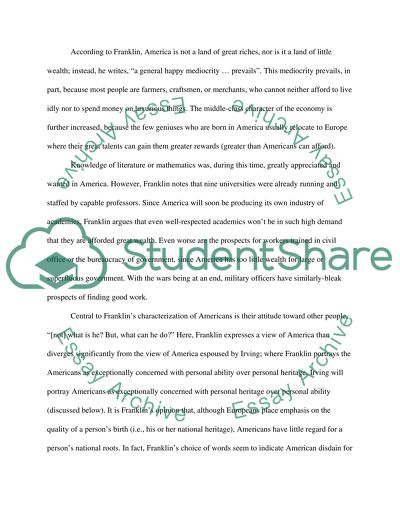Cite this document
(“Information to Those Who Would Remove to America and Traits of Indian Essay”, n.d.)
Retrieved from https://studentshare.org/literature/1459139-information-to-those-who-would-remove-to-america-and-traits-of-indian-character-by-benjamin-franklin-and-washington-irving
Retrieved from https://studentshare.org/literature/1459139-information-to-those-who-would-remove-to-america-and-traits-of-indian-character-by-benjamin-franklin-and-washington-irving
(Information to Those Who Would Remove to America and Traits of Indian Essay)
https://studentshare.org/literature/1459139-information-to-those-who-would-remove-to-america-and-traits-of-indian-character-by-benjamin-franklin-and-washington-irving.
https://studentshare.org/literature/1459139-information-to-those-who-would-remove-to-america-and-traits-of-indian-character-by-benjamin-franklin-and-washington-irving.
“Information to Those Who Would Remove to America and Traits of Indian Essay”, n.d. https://studentshare.org/literature/1459139-information-to-those-who-would-remove-to-america-and-traits-of-indian-character-by-benjamin-franklin-and-washington-irving.


